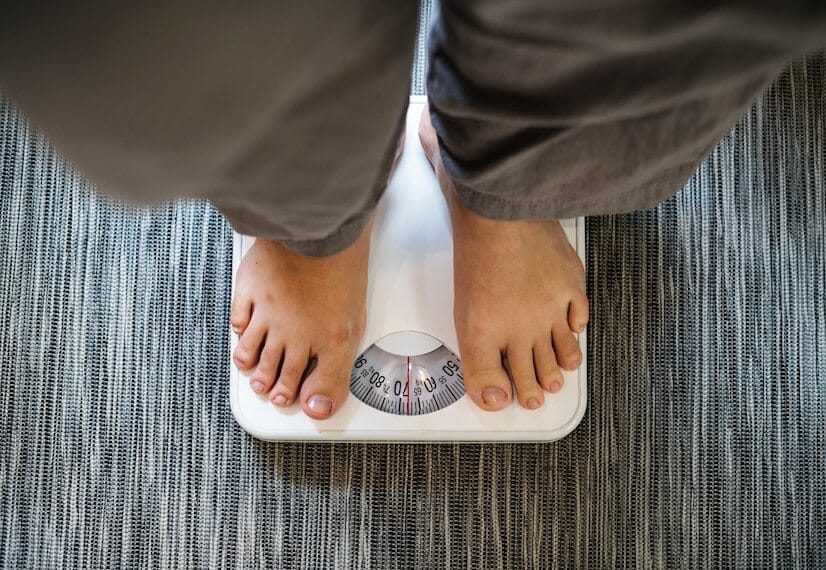
Good morning. In today’s edition:
Scientists May Have Discovered a New Way in Which Fasting Helps Reduce Inflammation – a Potentially Damaging Side-effect of the Body’s Immune System That Underlies a Number of Chronic Diseases
Diets That Aren't "Medically Necessary" Risk Lifelong Weight Effects: Study
Study Reveals New Connection Between Impaired Autophagy and Heart Failure
Energy Drinks Linked to Poor Sleep Quality and Insomnia Among College Students, According to a Study (Survey) Conducted on 53,266 Students Aged 18–35 Years in Norway
…and lots more. Have a great day!
Wildgrain is your dream come true. Their subscription brings artisanal sourdough, fresh pasta, and mouthwatering pastries to your doorstep. Even better, their innovative bake-from-frozen delights are ready in just 25 minutes, so you can savor all the flavor without the hassle. Don't wait, order now and dive into the delicious world of Wildgrain.
Plus, my readers can enjoy free croissants for life when they sign up today. 🥐
FOOD & NUTRITION
Scientists May Have Discovered a New Way in Which Fasting Helps Reduce Inflammation – a Potentially Damaging Side-effect of the Body’s Immune System That Underlies a Number of Chronic Diseases

Scientists have made an exciting find about fasting (not eating for a bit) and how it could help fight inflammation. Inflammation is when our body tries to protect itself but can sometimes cause problems like heart disease or diabetes.
A team from Cambridge found that when people fast, they have more of a chemical called arachidonic acid in their blood. This chemical helps calm down inflammation. They saw this by asking volunteers to eat a small meal, fast for 24 hours, and then eat another small meal. During the fast, the levels of this helpful chemical went up.
Before this study, people thought arachidonic acid made inflammation worse, but it turns out it might do the opposite. This could explain why not eating for a while might be good for our health. It may help us avoid diseases that come with eating too much or having a diet high in calories.
This research suggests that cutting back on food occasionally could lower the risk of getting sick from too much inflammation. It's an interesting idea. Older adults are more at risk for these kinds of health issues.
However, fasting isn't right for everyone, and it's important to talk to a doctor before trying it. This study gives us a new way to think about how our eating habits can affect our health. It's pretty cool to think that sometimes, less is more when it comes to food.
WEIGHT LOSS
Diets That Aren't "Medically Necessary" Risk Lifelong Weight Effects: Study

Ever thought dieting could be bad for you? A new study says yes, especially if it's not for health reasons. Researchers found that diets leading to quick weight loss and then gain, known as "yo-yo dieting," can hurt both your body and mind.
The study was shared in the Qualitative Health Research journal by North Carolina State University. The study talked to 36 adults who've been through this up-and-down weight journey. Most of them tried to lose weight not because a doctor said so, but because they felt pressured by society's beauty standards.
The findings? These diets often start not for health but due to feeling judged or wanting to look like famous people. This leads to a cycle of losing weight quickly using extreme diets or even pills, then gaining it back, and feeling worse than before.
Participants described their dieting as a tough cycle, like being addicted. They tried everything from counting every calorie, eating very little, to over-exercising. But these methods didn't last, and often, they ended up heavier than when they started.
The few who did break free from this cycle focused on eating healthy without obsessing over food. Yet, most found it hard to escape the pull of diet culture and the shame tied to weight.
The takeaway? Dieting without a medical reason might set you up for a long battle with weight, leading to unhappiness and stress. It shows how deep societal pressures go and how hard they are to shake off, even when you know they're not good for you.
HEALTH
Study Reveals New Connection Between Impaired Autophagy and Heart Failure

Researchers at UCLA Health found out something important about our heart health. They learned that when our body's cleanup system for cells, called autophagy, doesn't work right, it can lead to heart failure. This discovery could help doctors find new ways to treat heart problems.
Autophagy is like the body's way of cleaning up broken cell parts and reusing them. But if it's not working well, it can cause heart issues. The team found that problems with autophagy mess with a vital nutrient called NAD+, which our cells need for energy.
Heart failure is a big issue, and we need new treatments. This research shows that fixing autophagy problems could help keep our heart cells healthy. It does this by making sure they have enough NAD+.
The researchers used mice to learn how autophagy affects the heart. They found that blocking a certain enzyme that becomes more active when autophagy is off can actually help fix heart failure. This is true even if autophagy is still not right.
This study is exciting because it suggests a new way to help people with heart failure by focusing on keeping NAD+ levels up in heart cells. It's a big step forward in understanding how to keep our hearts healthy. Scientists from different places worked hard, and many organizations supported them.
Learning about this link between cell cleanup and heart health opens up new possibilities for treating heart failure. This gives hope for better health.
Energy Drinks Linked to Poor Sleep Quality and Insomnia Among College Students, According to a Study (Survey) Conducted on 53,266 Students Aged 18–35 Years in Norway

Guess what? Drinking too many energy drinks could make it hard for college students to sleep well. A study in Norway looked at over 53,000 students and found that the more energy drinks they had, the worse they slept. Even a little bit, like one to three cans a month, could mess up their sleep.
Energy drinks have a lot of caffeine, like a strong cup of coffee, and other stuff to give you a quick energy boost. But, this study says that boost might make it hard to get good sleep. It turns out, drinking these every day can lead to sleeping about 30 minutes less. People who drink them a lot also have trouble falling asleep and wake up more during the night.
Both guys and girls have these sleep problems, but the study noticed that girls tend to drink less of these drinks. Still, more than half of the students drinking them every day said they felt symptoms of insomnia, which means they really struggle to sleep.
The researchers say that maybe drinking fewer energy drinks could help students sleep better. They can't be 100% sure that energy drinks are the cause of the problem, but there's a strong connection. So, if you're finding it tough to sleep, think about cutting back on energy drinks.
✢ A Note From Hem Hero
The information in this health newsletter is for educational purposes only and is not a substitute for professional medical advice, diagnosis, or treatment; always consult your healthcare provider with any questions or concerns you may have regarding your health. The publishers are not responsible for any actions taken by the reader based on the information provided.

